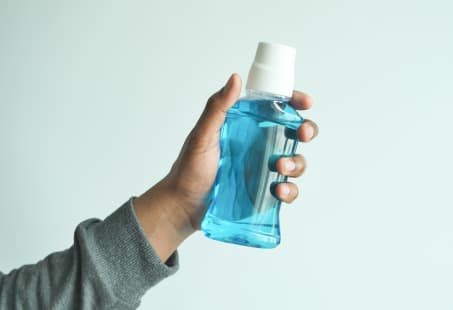Dental mouthwash is one of those things that many people question the need for. While it’s not a substitute for either brushing or flossing the teeth, some people still have it as a part of their oral hygiene routine for reasons that can be therapeutic, preventative or even cosmetic.
But apart from understanding the various benefits of using a mouthwash, some also feel unsure of the right timing of its usage. Should it be used before brushing, after brushing, right after lunch or before it? In this guide, we will explain what dental mouthwashes are, what they can do for you, and how you can use them.
What Is A Mouthwash?
According to a study published in the Bosnian Journal of Basic Medical Sciences, a dental mouthwash is a “non-sterile aqueous solution” with the following uses:
- Decrease bacteria in the mouth.
- Get rid of particles of food.
- Short-term relief from halitosis.
- Leave a good taste in the mouth.
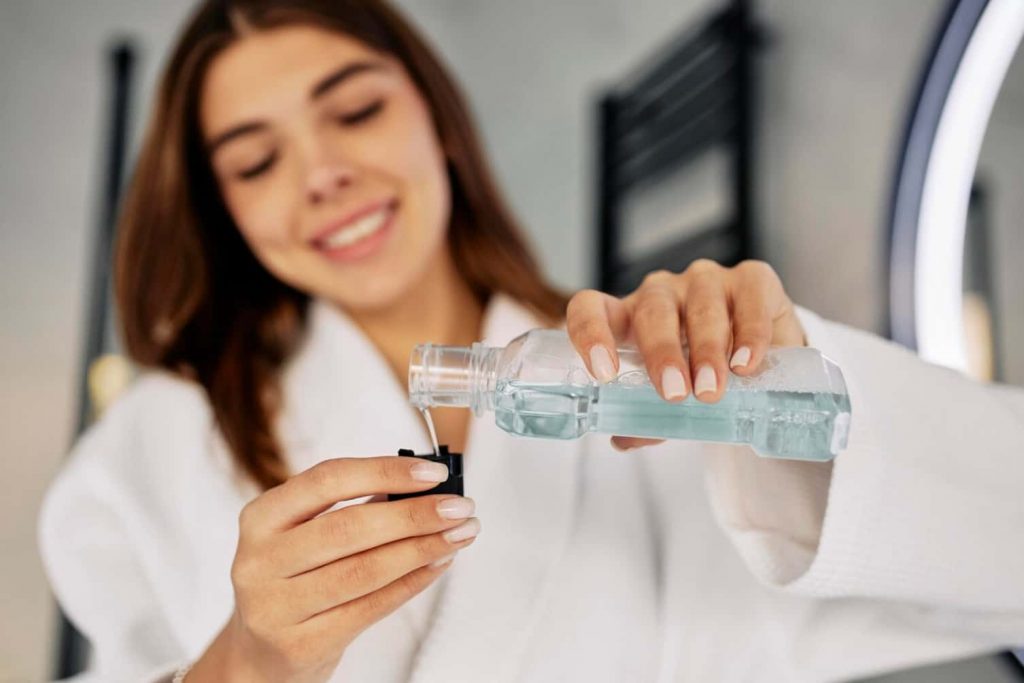
Mouthwashes aren’t exclusively made for one or more functions. For instance, you might’ve come across mint or green tea mouthwashes that not only address bad breath but also have certain active ingredients that can help with dental plaque.
An independent review published in the Saudi Dental Journal validated that essential-oil-containing Listerine mouthwash has “anti-plaque and anti-gingivitis” properties. Keep in mind that plaque itself can also cause bad breath, so by taking care of that, this mouthwash may help with the latter as well.
Other than essential oils, however, there are other active ingredients that can be found in mouthwashes, such as chlorhexidine, cetylpyridinium chloride (CPC) and fluoride. The NHS explicitly states that using mouthwash with fluoride can help in the prevention of tooth decay.
But others are quite useful as well. Chlorhexidine is an antiseptic mouthwash that is used in the treatment of gingivitis. It may even help in the prevention of a dry socket after tooth extraction, according to Cochrane. CPC is another antimicrobial rinse that can be helpful in preventing gingivitis, reducing plaque and even suppressing bad breath.
Therefore, mouthwash can be helpful in the maintenance of good oral hygiene. But you must consult your dentist before using any mouthwash. They might seem harmless but mouthwashes can cause adverse effects. The American Dental Association (ADA) also advises against the use of mouthrinse by children under 6 due to swallowing risk.
What Are The Risks Of Using A Mouthwash?
While dental mouthwashes may be helpful for your teeth and gums, they don’t always come without risks. Starting with chlorhexidine, which is available on both prescription and over-the-counter, the Mayo Clinic reports it can do the following:
- Leave a bitter aftertaste.
- Change the taste of food to you.
- Stain your teeth, mouth and restorations.
- Increase hardened plaque (tartar).
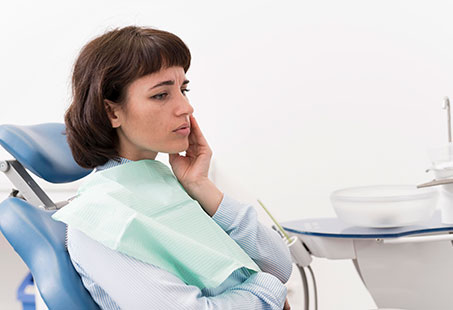
This isn’t all, which is why you must talk to your dentist about how long you should use this type of mouthwash. According to the NHS, chlorhexidine treatments usually last up to a month.
Long-term use of cetylpyridinium chloride (CPC), in particular, is also associated with the use of staining of teeth and dental restorations. Burning sensation in the mouth, changes in taste, ulcers, and stomatitis (inflammation of the mouth) after the use of CPC mouthwashes were also reported in a study published in the Therapeutic Advances in Drug Safety.
With fluoride as well you have to be careful as using too much of it can affect the colour of your teeth. There are some safety concerns about other active ingredients too, such as hydrogen peroxide. Even with inactive ingredients like alcohol, you can experience side effects such as dry mouth, sores and irritation.
What Does A Mouthwash Do?
Following are some of the things that people are curious to know whether a mouthwash can help with:
Does A Mouthwash Help Sore Throat?
Mouthwashes certain active ingredients may help with a sore throat. Povidone-iodine or PVP-I is an example of a mouthwash for sore throat. It has antimicrobial properties and has also been shown to work against viruses.
According to a study published in the International Journal of Clinical Practice, gargling/rinsing with PVP-I can help in the treatment and prevention of sore throats.
In another study in Infectious Diseases and Therapy, the researcher reported that PVP-I mouthwash can help with bacteria and viruses causing oral and respiratory tract infections.
But remember that even though the answer to “Do mouthwashes help sore throat” may be yes, you must consult your doctor about using them.
Does A Mouthwash Help Gum Disease?
There are many studies exploring the relationship between the use of mouthwash and gum disease. Many active mouthwash ingredients have been shown to help with gum disease. One that’s commonly heard of in this regard is chlorhexidine (CHX).
A review published in the Journal of Dentistry reported the use of chlorhexidine in gingivitis, necrotizing gingivitis and periodontitis. But one thing to be careful about when it comes to gum disease mouthwash is the concentration.
One research in the International Dental Journal recommended it to be somewhere between 0.12% to 0.2% as anything more than that might increase the risk of side effects.
It should also be noted that mouthwash for gingivitis might also help in the prevention of the condition by not allowing the plaque to gather around the teeth. But you have to be careful about the usage of gingivitis mouthwash.
If you have gum issues, you should ask your dentist about the best mouthwash for gum disease instead of looking one up yourself. They’ll let you know which concentration and ingredient in the mouthwash for gums might suit you best.
That’s because other ingredients are reported to help with gum disease as well. Cetylpyridinium chloride, fluorides, and herbs (like curcumin), among others, were reported in a study in Molecules. There can be different available mouthwashes for gum disease.
Does A Mouthwash Help Toothache?
There are mouthwashes for toothaches that can provide you relief from pain. Starting from desensitising mouthwashes, they can work by blocking small channels in the dentin called dentinal tubules or blocking the transmission of information between nerves, as reported in a study in the Journal of Conservative Dentistry.
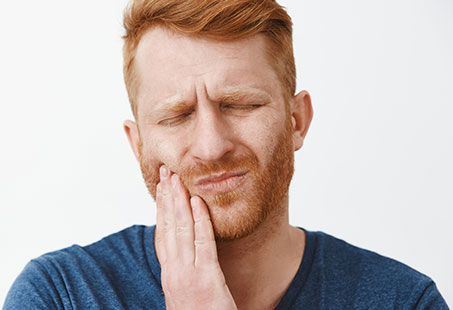
There’s also a type of mouthwash called “magic mouthwash” that helps with pain in the mouth and throat. This kind of mouthwash doesn’t have a standard formula. In fact, it can contain a combination of ingredients from corticosteroids, antihistamines, antibacterials/fungals, etc. Both your doctor and pharmacist will be involved in its making.
Does A Mouthwash Whiten Teeth?
Certain mouthwashes are advertised for teeth whitening. Peroxides (hydrogen, carbamide) are used as bleaching agents to whiten the teeth in different products and professional teeth whitening. But in mouthwashes, it might not be so effective.
A study published in the Scientific World Journal measured the difference in efficacy of hydrogen peroxide mouthwash vs carbamide peroxide gel. The researchers found that although the mouthwashes helped whiten the teeth, the change in colour was not as significant as what was achieved from at-home bleaching gels.
Also, note that some mouthwashes can indirectly whiten your teeth by helping with the plaque. It won’t exactly whiten the teeth in the traditional sense, but it will make them look cleaner.
Does A Mouthwash Remove Plaque?
Dental mouthwashes can help in the removal of plaque. It may also prevent it from forming around your teeth in the first place. According to a study in the Journal of Personalized Medicine, the following ingredients can stop the growth of bacteria or prevent the bacteria from sticking to the teeth:
- Chlorhexidine
- Triclosan
- Cetylpyridinium chloride
- Certain essential oils
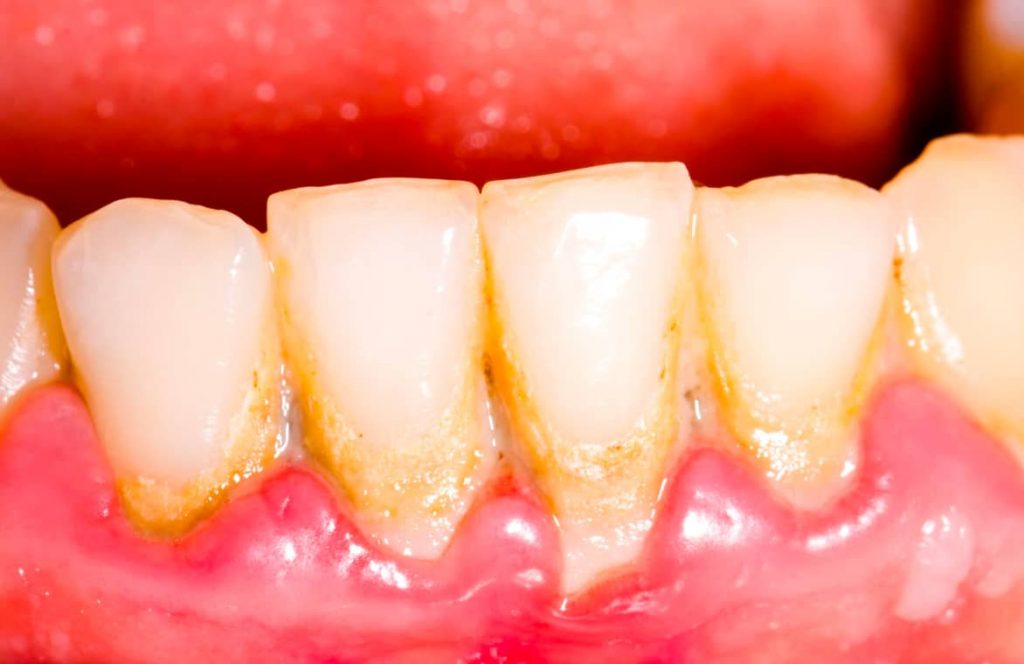
What Are The Benefits Of A Mouthwash?
Mouthwash benefits can be therapeutic, cosmetic and preventative. It depends on what you’re using them for. Sometimes, their effects are more direct, for instance, when they help with plaque, gum disease, or tooth decay. Other than that, there are:
- Mouthwash for infections – like gum disease and oral and respiratory tract infections.
- Mouthwash for bleeding gums – like those for healthy gums and/or plaque reduction.
- Mouthwash for bad breath – it can do so by helping with plaque and gum disease.
- Mouthwash for mouth sores – it can help by taking care of bacteria in the area.
- Mouthwash for receding gums – Can’t grow the gums back, but can help with this problem by improving gum health.
Its uses are varied as well. For instance, mouthwash for braces can help you keep your teeth clean when it can be slightly difficult to reach all the nooks and crannies. Those with braces also tend to accumulate plaque, which is why a mouth rinse can be helpful. Another example of its use is for people who struggle with xerostomia or dry mouth.
How To Use A Mouthwash?
Using a mouthwash is simple enough and usually involves the following steps:
- Pour the recommended amount of the mouthwash into a plastic container.
- Dilute it if instructed by your dentist.
- Swish it in each area of the mouth, making sure to gargle for the back.
- After 30 seconds, spit it out.

Make sure to read the instructions on the bottle and do as advised by your dentist.
When To Use A Mouthwash?
There are conflicting views regarding the timing of the use of the mouthwash. As far as the question, “Should you use mouthwash before or after brushing” is concerned, the NHS recommends that you shouldn’t use mouthwash right after brushing your teeth. That’s because it will remove the protective layer of fluoride from the toothpaste on your teeth.
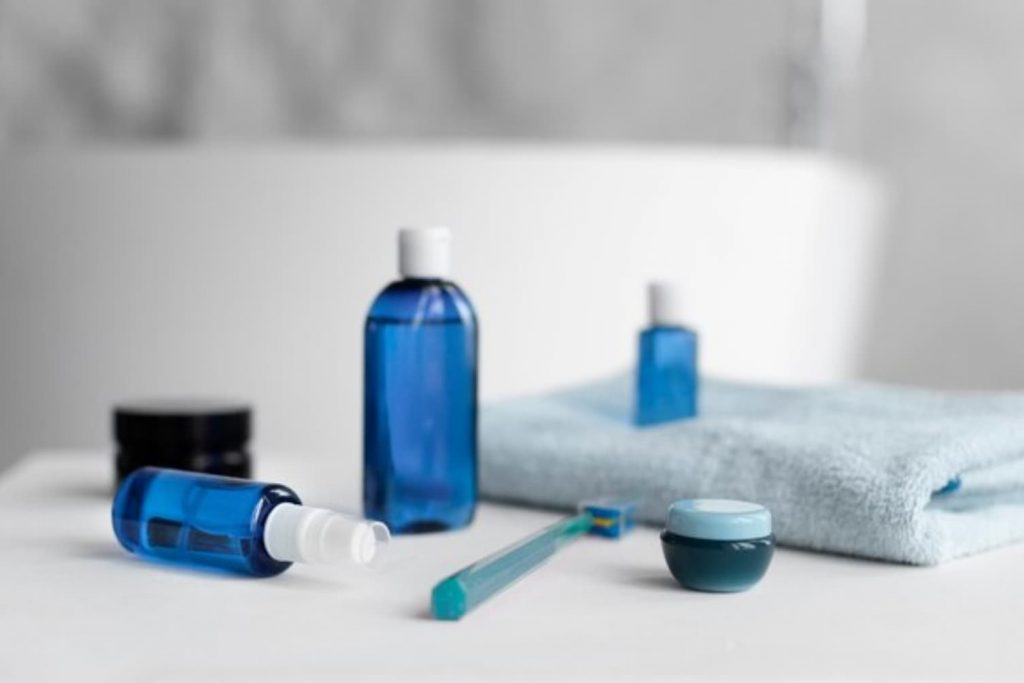
As far as the ADA is concerned, however, they recommend checking the manufacturer’s instructions on the bottle itself as the advice may vary according to the ingredients.
What Are The Types Of Mouthwash Available?
According to the American Dental Association, there are two types of mouthwashes: cosmetic and therapeutic. Cosmetic is mainly for taste and bad breath but therapeutic is more functional.
There can, however, be a third category which is “preventative.” There are different mouthwashes that can help, for instance, avoid the accumulation of plaque. That, in turn, can help prevent it.
Conclusion
Dental mouthwashes are widely used for various reasons. People have it as a part of their oral hygiene routine for various reasons. Sometimes, it’s just the extra measure to make sure that your teeth look, feel, and stay good. Other times, your dentist might recommend them to help you with an oral health problem.
In any case, it’s always a good idea to talk to your dentist at your dental clinic in Turkey or wherever you are before you start using mouthwash. It’s better to discuss with them what you’re looking to achieve from a mouthwash, so they can advise you accordingly. They’ll also let you know about any risks involved.
Reviewed and approved by Dr Izbel Aksit
FAQ
What happens if you drink mouthwash?
The symptoms of drinking larger amounts of mouthwash can depend on the ingredients of the product. You might experience drowsiness, intestinal issues, trouble breathing, convulsions, etc.
Does mouthwash stain teeth?
Certain ingredients in mouthwash, such as chlorhexidine, cetylpyridinium chloride or fluoride, have the potential to stain teeth. It can depend on the usage of such mouthwashes.
Does mouthwash work?
Mouthwashes can be effective for a number of oral issues like tooth decay, gum disease, bad breath, mouth sores, infection, etc. But you must keep in mind that they’re not a substitute for brushing your teeth or flossing.
What happens if you swallow mouthwash?
Swallowing a small amount of mouthwash may cause nausea or stomach issues. It’s best to talk to your dentist.
Why does mouthwash burn?
A bunch of active and inactive ingredients within the mouthwash can cause a burning sensation, such as alcohol, essential oils, and chlorhexidine.
Is mouthwash good for your teeth?
A mouthwash can be good for your teeth, but the idea of “good” can vary depending on what you’re looking to achieve. It can help with bad breath and it can also address some more serious oral health concerns. It can also be preventative for certain things, so it can be helpful. But make sure you seek your dentist’s advice.
